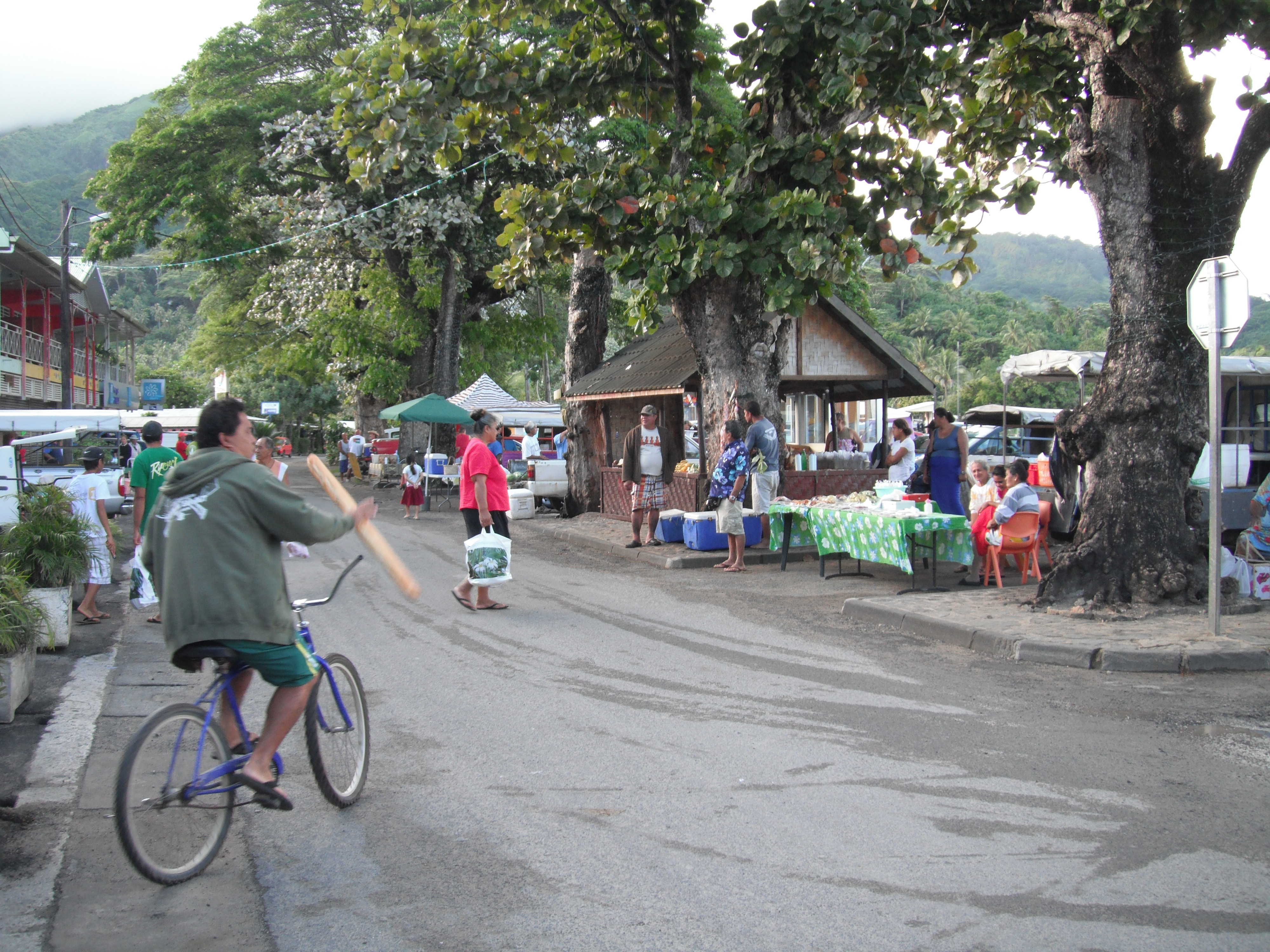Polynesia

Town of Fare, Island of Huahine, French Polynesia
Annotated bibliography of my work
My work on Polynesia focuses on Hawaii and Tahiti. I am a near-fluent speaker of Hawaiian, and also speak Tahitian. I am interested in issues of identity, performance traditions, and language and culture maintenance and revitalization. Articles I have written include:
1. "Diderot's Tahiti and Enlightenment Sexual Economics." Studies on Voltaire and the Eighteenth Century 265 (1995):349-64.
Examines the French view of Tahiti as a paradise of the noble savage, showing that in fact Diderot took the island as a laboratory for thinking through his own ideas and those of the Physiocrats on utilitarianism and sexual and economic reform in 18th-century France. Ultimately, Diderot steps back from fully embracing all the implications of these positions, suggesting that their complete practice is not possible or desirable for Europeans, though they are supposedly enacted in Tahiti.
2. “The Apocalypse of Paradise and the Salvation of the West: Nightmare Visions of the Future in the Pacific Eden.” Cultural Studies, 13 (1999):138-160. Pdf.
Looks at depictions of nuclear holocaust, ecological collapse and cannibalism in the Pacific, as found in popular literature and cinema, as well as in National Geographic, and argues that these themes are used as tropes against which to define a superior western consciousness and reflexivity, which is consistently denied to Pacific islanders themselves. As in the preceding paper, the tropes construct a European ability to supposedly "step back" from the brink of chaos, which is not present in the Pacific itself, and suggest that pure "paradise" is a form of horror.
3. “The Native Hawaiian Model of Language Revitalization: Problems of Extension to Native America.” International Journal of the Sociology of Language 218 (2012):167-93. Pdf.
Examines models of individual and group identity in Hawaii and Native America (focusing on Arapaho specifically and Plains reservations more generally). Suggests historical reasons why "Hawaiian" identity has been more diverse in terms of indexical features and those claiming membership in the category than has been the case for Native American identities. Argues that these historical reasons and the differing conceptions of identity they have produced are key to understanding why language revitalization has been less supported by the general public in the Mainland than in Hawaii, and why there is much more ambivalence about the identities among the indigenous population on the mainland than in Hawaii. Based on experience in both settings, I try to clarify hidden diachronic differences in linguistic culture and experience, often not understood by either Hawaiians or Native Americans, which can be impediments to revitalization.
4. “Visions of Performance: Vairaumati no Ra’iatea’s Arioi.” Text and Performance Quarterly 33 (2013):42-57. Pdf.
Examines depictions of traditional Polynesian performance practice, especially in one recent Francophone novel from Tahiti, and considers the ways in which contemporary thinkers of the area seek to reinvigorate performance traditions as a means of social critique and reflexivity. The paper finds that the text in question argues that the loss of such rich performance traditions as a result of colonial oppression has robbed the indigenous culture of a key resource for critical reflection, and that indigenous political revitalization depends on drawing upon and renovating past models of performance traditions.
5. Reading Tahitian Francophone Literature: The Challenge of Scent and Perfume." with Maureen DeNino. International Journal of Francophone Studies 16, 1-2 (2013):113-33. Pdf. Extended version (a more polished and complete version of the article, which was the one originally intended for publication).
Considers the traditional trope of French Polynesia as a charmed land of langourous scents and perfumes, and then examines how the local contemporary novelist Marie-Claude Teissier-Landgraf challenges these tropes in the context of an international, post-colonial "olfactory poetics." The paper suggests that the Tahitian case demands a very specific local response, which inflects the international poetics in unique ways in response to European stereotypes about Tahitian sexuality, which is closely linked to aromas. I argue that the novel is representative of a general trend in French Polynesian writing not only of resisting outside tropes and stereotypes about Tahiti generally, but of a more specific suspicion of potential misreadings of the culture and its emergent Francophone literature in an international literary context.